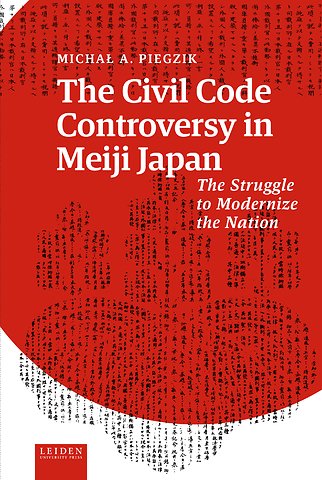The Civil Code Controversy in Meiji Japan
The Struggle to Modernize the Nation
Samenvatting
The book outlines a dramatic history of the failed liberalization of Japanese private law during the Meiji era. Once Japan overthrew the shogunate and fully opened up to contact with the world, modernization of the backward country and its fragmented customary legal system became a crucial objective of the new ruling elites.
The initiated codification of law included the drafting of the first Civil Code, designed to revolutionize the traditional societal ties in Japan. The legal project, seemingly straightforward, turned out to be notoriously difficult and dragged on for three decades. More importantly, it led to a national controversy, dividing the Japanese jurisprudence into two opposing factions, which supported drastically different visions of the Civil Code and thus, the country's future.
The presented book is not only an account of Japanese legal history. It depicts the fierce fight between liberal and conservative jurists who believed in protecting society from the law’s harmful effects. The discussion on the Civil Code transcended the classical legal dispute, touching on the Japanese people's historical, political, societal and cultural identity.
Specificaties
Inhoudsopgave
1. The History of the Japanese Legal System
2. Japanese Endeavours to Codify Civil Law, 1868–1889
3. Schools of Legal Scholarship in Japan – The Main Actors in the Civil Code Controversy
4. The First Stage of the Civil Code Controversy: The Dispute until the Publication of the Codes
5. The Second Stage of the Civil Code Controversy – The Transitional Period
6. The Third Stage of the Civil Code Controversy: escalation and conclusion
7. Summary of the Civil Code Controversy
8. Conclusions
Bibliography







